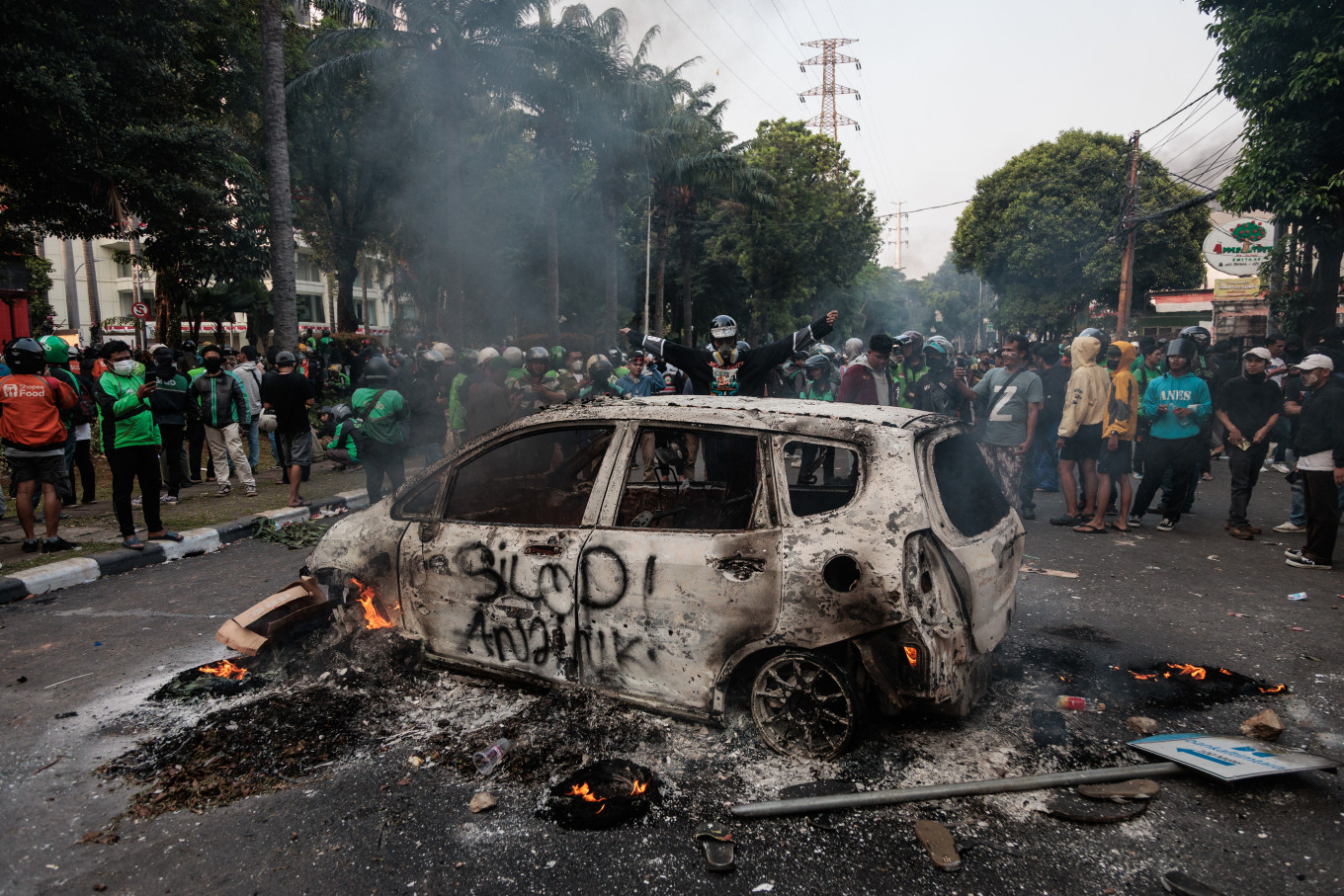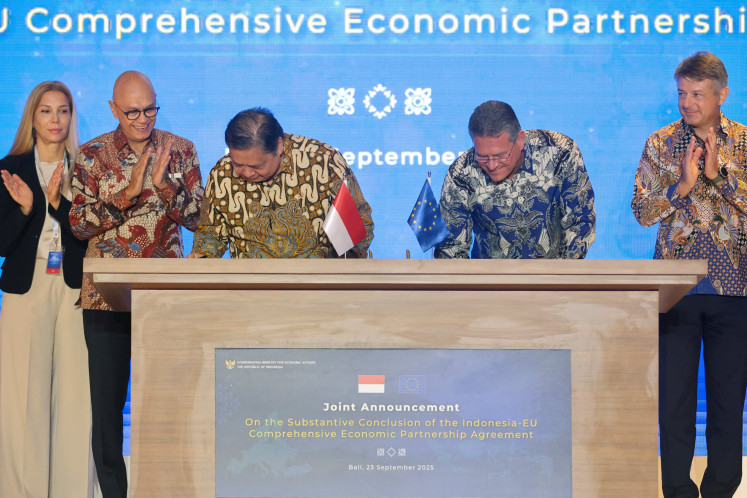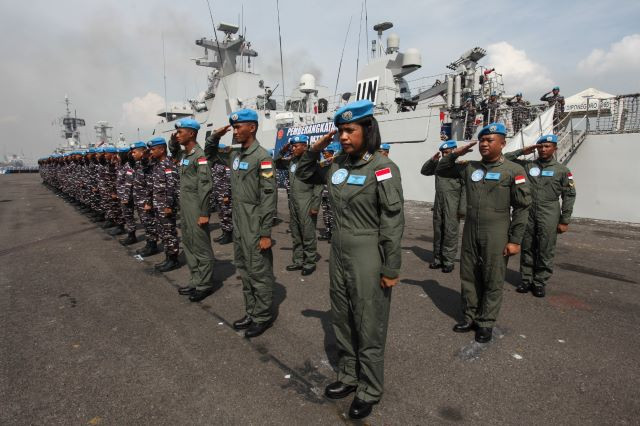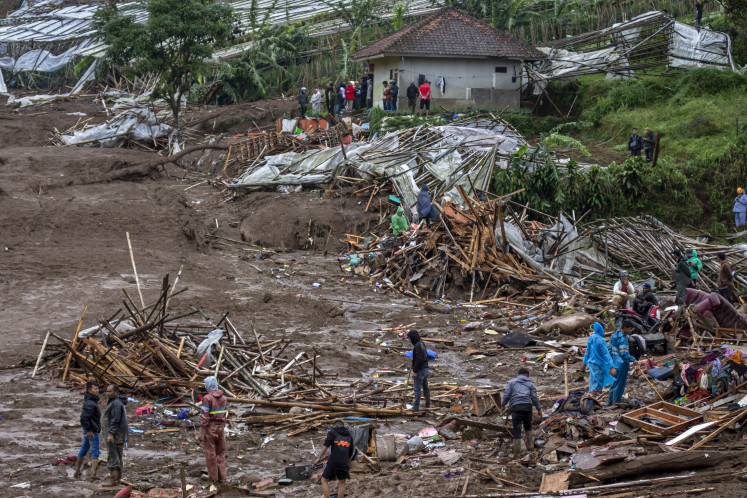Popular Reads
Top Results
Can't find what you're looking for?
View all search resultsPopular Reads
Top Results
Can't find what you're looking for?
View all search resultsNot a ‘98 repeat
What began as scattered unrest has now spilled across cities, fueled by deep economic frustration, perceived elite impunity and a rising sense that the political class has grown deaf to the people’s plight.
Change text size
Gift Premium Articles
to Anyone
I
ndonesia is living through one of its most volatile moments since the democratic transition of 1998. What began as scattered unrest has now spilled across cities, fueled by deep economic frustration, perceived elite impunity and a rising sense that the political class has grown deaf to the people’s plight.
This is President Prabowo Subianto’s biggest test yet, not only of his leadership, but of his fidelity to the democratic values hard-earned through Reformasi.
To his credit, the President’s address on Sunday struck several correct notes. He pledged respect for peaceful protest, cited international human rights conventions and openly condemned excessive police force.
He also offered something rare in Indonesian politics: accountability. Under pressure, major parties have rebuked or apologized for controversial statements by lawmakers, revoked some legislative privileges and promised a moratorium on wasteful overseas junkets.
But the stringing together of words, no matter how well-delivered or coordinated with political party leaders, is not enough.
The President must realize that this crisis will not be defused with symbolic gestures or public relations maneuvering.
If his administration is serious about earning public trust, the reckoning must start from the top.
The National Police, under Gen. Listyo Sigit Prabowo, has faced repeated accusations of disproportionate force.
Promising internal investigations is a first step, but without immediate, transparent and public consequences, these probes risk being seen as stalling tactics.
The President must consider the dismissal of top leadership as a signal of serious intent.
Just as importantly, the President must avoid falling back on familiar instincts of repression.
His speech carefully walked a line between affirming civil liberties and warning against anarchy, but some phrases, such as labeling protesters as potentially committing “treason” or “terrorism”, echo dangerous historical precedents.
Already, there are reports of arbitrary arrests, the banning of live TikTok streams and excessive troop mobilizations. Both the government and the people cannot afford to resurrect the ghosts of the past under the pretext of order.
The challenge now is not just to restore calm, but to understand why the calm was broken in the first place.
Austerity measures, poorly communicated state programs and a disconnect between economic policy and real household pain have pushed ordinary Indonesians to the brink.
For years, citizens have watched lawmakers flaunt wealth, defend inflated allowances and sidestep accountability while wages stagnated and basic services deteriorated.
Prabowo must now do more than manage a crisis. He must show he understands its roots.
This means demanding not just public apologies, but real structural reform: slashing elite entitlements, overhauling communication between national and regional governments and ensuring that economic policies reflect the daily realities of the most impoverished of his fellow Indonesians.
Likewise, we call on all members of the political class, particularly those in elected office, to fulfill their duty to represent and not inflame.
Constituents in regions hit hardest by unrest deserve more than silence or platitudes. They deserve their representatives to act as mediators, defenders and listeners. That means visiting affected areas, calling for calm with credibility and ensuring that local voices are heard at the national level.
The timing of this unrest could not be more telling. Just weeks ago, Indonesia celebrated the 80th anniversary of independence and listened to Prabowo’s maiden state address. It was supposed to be a moment of shared spirit, of national unity. Instead, the public now sees a deep rift between the promises of leadership and the realities on the ground.
President Prabowo still has a chance to close that gap; not with force, but with fairness. This means protecting peaceful protest, punishing violent actors without prejudice – especially if they are proven to be engineered – and putting people, not power, at the center of policymaking.
Let this not be a repeat of 1998. Let this be the beginning of a leadership marked by courage, humility and responsibility to reach a mature democracy.











